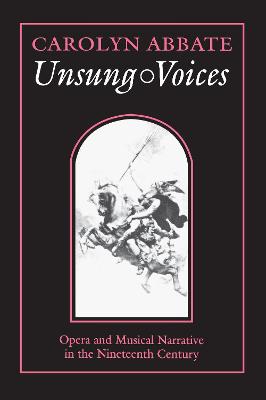Princeton Studies in Opera
2 total works
Who "speaks" to us in The Sorcerer's Apprentice, in Wagner's operas, in a Mahler symphony? In asking this question, Carolyn Abbate opens nineteenth-century operas and instrumental works to new interpretations as she explores the voices projected by music. The nineteenth-century metaphor of music that "sings" is thus reanimated in a new context, and Abbate proposes interpretive strategies that "de-center" music criticism, that seek the polyphony and dialogism of music, and that celebrate musical gestures often marginalized by conventional music analysis.
An intersection between transcendence and intense physical grounding, she asserts, is a quintessential element of the genre, one source of the rapture that operas and their singers can engender in listeners. The text mediates between an experience of opera that can be passionate and intuitive, and an intellectual engagement with opera as a complicated aesthetic phenomenon. Marrying philosophical speculation to historical detail, Abbate contemplates a central dilemma: the ineffability of music and the diverse means by which a fugitive art is best expressed in words.

